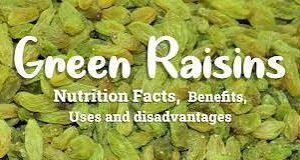The health benefits of almonds include lower blood sugar levels, reduced blood pressure, and lower cholesterol levels. They can also reduce hunger and promote weight loss. Overall, almonds are as close to perfect as a food can get, with some considerations.

Almonds are the edible seeds of Prunus dulcis, more commonly called the almond tree.
They are native to the Middle East, but the United States is now the world’s largest producer.
The almonds you can buy in stores usually have the shell removed, revealing the edible nut inside. They are sold either raw or roasted.
They are also used to produce products like almond milk, oil, butter, flour, paste, or marzipan.
Almonds boast an impressive nutrient profile. A 1-ounce (oz), or 28-gram (g), serving of almonds contains (1Trusted Source, 2Trusted Source):
- Fiber: 3.5 g
- Protein: 6 g
- Fat: 14 g (9 of which are monounsaturated)
- Vitamin E: 48% of the daily value (DV)
- Manganese: 27% of the DV
- Magnesium: 18% of the DV
- a decent amount of copper, vitamin B2 (riboflavin), and phosphorus
This is all from a small handful of almonds, which has 164 calories and 6 grams of carbohydrates, which includes 3.5 grams of fiber.
It is important to note that your body does not absorb about 6% of the fats in almonds because this fat is inaccessible to digestive enzymes (3Trusted Source).
Almonds are also high in phytic acid, a substance that binds certain minerals and prevents them from being absorbed by the body.
While phytic acid is generally considered a healthy antioxidant, it also slightly reduces the amount of iron, zinc, and calcium your body absorbs from almonds.
SUMMARYAlmonds are very popular tree nuts. They are high in healthy monounsaturated fats, fiber, protein, and various important nutrients.
Almonds are a fantastic source of antioxidants.
Antioxidants help protect against oxidative stress, which can damage molecules in your cells and contribute to inflammation, aging, and diseases like cancer (4Trusted Source, 5Trusted Source).
The powerful antioxidants in almonds are largely concentrated in the brown layer of their skin (6Trusted Source, 7Trusted Source).
For this reason, blanched almonds — those with skin removed — have less antioxidant capacity. This means they may not offer the same anti-inflammatory capabilities.
A 2022 analysis of 16 clinical trials including over 800 participants found that eating up to 60 g (about 2.25 oz) of almonds per day reduced two different markers of inflammation in the body (8Trusted Source).
These findings support those of another study, which found that eating 2 oz (56 g) of almonds daily for 12 weeks reduced markers of inflammation among a group of over 200 participants between ages 16 and 25 (9Trusted Source).
SUMMARYAlmonds are high in antioxidants that can protect your cells from oxidative damage, a major contributor to aging and disease.
Vitamin E is a family of fat-soluble antioxidants.
These antioxidants are found within the structure of cell membranes in your body, protecting your cells from oxidative damage.
Almonds are among the world’s best sources of vitamin E. Just 1 oz provides 48% of the DV (1Trusted Source, 2Trusted Source).
Several studies have linked higher vitamin E intake with lower rates of heart disease, cancer, and Alzheimer’s disease. However, more research is needed to fully confirm these benefits (10Trusted Source, 11, 12Trusted Source, 13Trusted Source, 14Trusted Source, 15Trusted Source).
SUMMARYAlmonds are among the world’s best sources of vitamin E. Getting plenty of vitamin E from foods is linked to numerous health benefits.
Nuts are low in carbs but high in healthy fats, protein, and fiber.
This makes them a perfect choice for people with diabetes.
Another boon of almonds is their remarkably high amount of magnesium.
Magnesium is a mineral involved in more than 300 bodily processes, including blood sugar management (16Trusted Source).
The daily value for magnesium is 420 milligrams (mg). And 2 oz of almonds provides almost half that amount: 153 mg of this important mineral (1Trusted Source, 2Trusted Source).
Interestingly, it is estimated that at least a quarter of people with type 2 diabetes have a deficiency in magnesium. Adequate magnesium intake has been associated with a reduced risk of type 2 diabetes and improved blood sugar management in people with diabetes (17Trusted Source, 18Trusted Source, 19Trusted Source).
Magnesium may also be linked to reductions in insulin resistance among people with and without diabetes (20Trusted Source).
This indicates that foods high in magnesium, such as almonds, may help prevent metabolic syndrome and type 2 diabetes, both of which are major health concerns.
SUMMARYAlmonds are extremely high in magnesium, a mineral that many people don’t get enough of. High magnesium intake may offer major improvements for metabolic syndrome and type 2 diabetes.
The magnesium in almonds may also help lower blood pressure levels.
High blood pressure is one of the leading drivers of heart attacks, strokes, and kidney failure.
A deficiency in magnesium is strongly linked to high blood pressure (21Trusted Source).
Several meta-analyses have suggested that magnesium supplementation can significantly lower blood pressure among people with and without high blood pressure, as well as people with preexisting chronic disease (22Trusted Source, 23Trusted Source).
Adding one to two servings of almonds to your diet can help you meet the recommended daily magnesium intake, which may have positive effects on your health.
SUMMARYLow magnesium levels are strongly linked to high blood pressure, indicating that almonds can help manage blood pressure.
High levels of low-density lipoproteins (LDLs) in your blood — also known as “bad” cholesterol — are a well-known risk factor for heart disease (24Trusted Source).
Your diet can have major effects on LDL levels. Some studies have suggested almonds may be effective in lowering LDL.
A 6-week study including 107 participants at high risk of cardiovascular disease found that a diet providing 20% of calories from almonds lowered LDL cholesterol levels by an average of 9.7 milligrams per deciliter (mg/dL) (25Trusted Source).
Another study found that eating 1.5 oz (42 g) of almonds per day lowered LDL cholesterol by 5.3 mg/dL while maintaining high-density lipoproteins (HDLs), or “good” cholesterol. Participants also lost belly fat (26Trusted Source).
SUMMARYEating one or two handfuls of almonds per day can lead to mild reductions in LDL (bad) cholesterol, potentially reducing the risk of heart disease
Almonds do more than just lower LDL levels in your blood.
They also protect LDL from oxidation, which is a crucial step in the development of atherosclerosis. Atherosclerosis is the narrowing of arteries caused by fatty plaque buildup on the artery wall lining, which increases the risk of heart disease (27Trusted Source).
Almond skin is rich in polyphenol antioxidants, which prevent the oxidation of cholesterol in test-tube and animal studies (28Trusted Source, 29Trusted Source, 30Trusted Source).
The effect may be even stronger when combined with other antioxidants such as vitamin E.
One human study including 27 participants showed that snacking on almonds for 1 month lowered oxidized LDL cholesterol levels by 14% (31Trusted Source).
This may lead to a reduced risk of heart disease over time. More research, including larger human studies, is needed to confirm this.
SUMMARYLDL (bad) cholesterol can become oxidized, which is a crucial step in the development of atherosclerosis. Snacking on almonds may significantly reduce oxidized LDL.
Almonds are high in protein and fiber.
Both protein and fiber are known to increase feelings of fullness. This can help prevent you from overeating (32Trusted Source, 33Trusted Source).
One 4-week study in 137 participants showed that a daily 1.5-oz (43-g) serving of almonds significantly reduced hunger and the desire to eat (34Trusted Source).
Numerous other studies support the hunger-fighting effects of nuts (35Trusted Source, 36Trusted Source).
SUMMARYNuts are high in protein and fiber. Studies show that eating almonds and other nuts can increase fullness and help prevent overeating.
Nuts contain several nutrients that your body struggles to break down and digest.
Your body does not absorb about 6% of the calories in nuts. Additionally, some evidence suggests that eating nuts can boost metabolism slightly (37Trusted Source).
Due to their satiating properties, nuts are a great addition to an effective weight loss diet.
Quality human research supports this.
A review of 64 clinical trials and 14 meta-analyses reported that almonds were the only nut that showed a small but significant reduction in body weight and fat mass (38Trusted Source).
Another study including 100 overweight women found that those consuming almonds lost more weight than those on a nut-free diet. They also showed improvements in waist circumference and other health markers (39Trusted Source).
It should be noted that both this study and the one above required participants to follow low calorie diets in addition to eating almonds.
Despite being high in fat, almonds are definitely a weight-loss-friendly food.
Almonds and other nuts are very high in calories. So, it is important to be mindful when snacking on almonds and other nuts. As with all foods, moderation is key.
SUMMARYThough almonds are high in calories, eating them doesn’t seem to promote weight gain. Some studies even suggest the opposite, showing that almonds can enhance weight loss.





Reviews
There are no reviews yet.